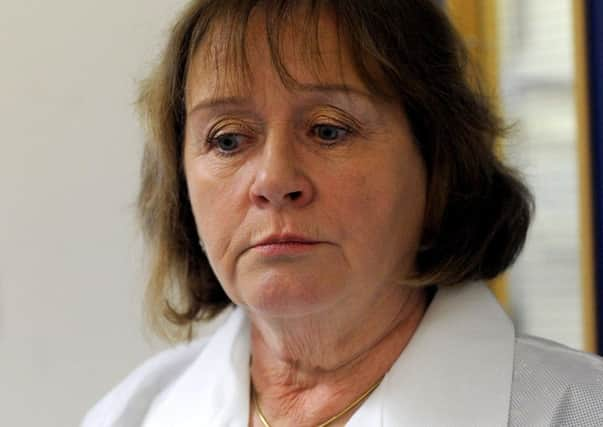Scots doctors’ funding down £1bn in real terms


The dramatic funding cut is revealed in a Royal College of General Practitioners Scotland report, which paints a bleak picture of a GP system in a crisis and poses a threat to patient care.
According to the document titled A Blueprint For Scottish General Practice, doctors are facing “immense pressure” due to “rising workloads and constrained finances”.
Advertisement
Hide AdAdvertisement
Hide AdThe report points out that GPs are the first point of contact for 90 per cent of those who use the NHS and Scottish GP surgery teams are now carrying out around 24.2 million consultations each year – an 11 per cent rise over the past decade.
The rising demand has been accompanied by a real terms cash cut which has seen the GP budget fall from being 9.8 per cent of Scottish NHS spend in 2005-6 to a “record low” of 7.8 per cent in 2012-13.
Although the overall Scottish health budget has risen from around £11 billion in 2005-6 to almost £12bn today, the report suggests that lowering the proportion of it spent on GPs has had a startling effect on the amount of cash available to them.
For example, in 2010/11 the proportion of the overall NHS budget spent on GPs was 7.93 per cent – around £177 million less than it would have been had the 9.8 per cent spending levels of 2005-6 been maintained.
When the shortfalls were added up since 2005-6 RCGP Scotland calculated that it came to a real term cumulative loss of investment of £1.1bn.
“Rising workloads, a shortage of GPs and declining resources are putting intolerable pressure on local practices and posing a threat to patient care,” the report warned.
RCGP Scotland said the Scottish Government had to take urgent action to invest in GP services. The stresses on the system caused by increasing workload and difficulties recruiting more doctors had become more acute in the past six months, the report said. It also identified low morale in the profession citing a survey claiming that 54 per cent of GPs felt their workload was unmanageable.
GP numbers have been static over the past few years at a time when more doctors were required to meet patient demand. The recruitment crisis has extended to other healthcare professionals with the report identifying that 50 per cent of community nurses in Scotland were aged 50 or older.
Advertisement
Hide AdAdvertisement
Hide AdThe deficiencies of many doctors’ surgeries were also looked at. The report referred to a survey which found that 38.9 per cent of GP practices felt their premises were inadequate and 61.6 per cent felt a lack of space was a barrier to training GPs.
Scottish Labour public health spokesperson Dr Richard Simpson, a former GP with more than 30 years’ experience said: “The SNP government in Edinburgh need to open their eyes and accept the mounting crisis in general practice which has happened on their watch, because of their spending decisions.
“Since they came to power the amount of money invested in family doctors has been slashed year on year. They have squeezed health spending in Scotland harder than the Tories in England and practices which serve our communities are feeling the effects.
“The next decade will see a huge number of our GPs retire and there simply are not enough doctors training in general practice or even staying in the country to replace them. Around two million patients in Scotland are served by under-staffed and under-resourced practices. This problem is not going to go away, it is only going to get worse and its effects will be felt through the NHS as patients unable to get appointments with their GP turn up at hospitals.”
Simpson added: “We are seeing investment drop as demand increases. The SNP need to get a handle on this crisis as soon as possible. The first step is admitting there is a serious problem, and they are responsible for it.”
Last night public health minister Maureen Watt said the SNP administration recognised the challenges facing family doctors.
“This government has increased the amount of funding for primary care by £81 million, or 12 per cent, since 2006-7,” she added. “Scotland continues to have the most GPs per head of population and spends the second highest per head in the UK on primary care.
“However we recognise that increasing attendances and recruitment challenges are putting additional pressure on GPs and that is why, last month, we announced an additional £60m to be invested in primary care over the next three years.”